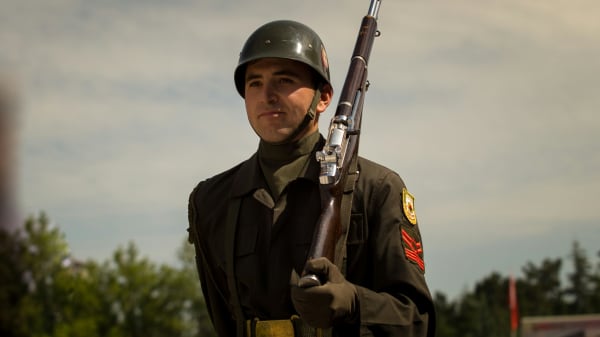Cultural adaptation in the Armed Forces is a dynamic and complex process that can profoundly impact the effectiveness of military operations. Service members not only have to be physically fit and strategically agile but also need to be able to learn about, understand, and respect other cultures. This is especially crucial in situations where military personnel are deployed to new cultural environments, as the ability to successfully adapt can determine the success of the mission.
The Importance of Cultural Adaptation in the Armed Forces
Cultural adaptation is the process of adjusting, understanding, and aligning oneself with a new or different cultural environment. It increases the military's ability to operate in unfamiliar settings, build relationships with local communities, and convey strategic messages effectively.
In the complex terrains where modern warfare occurs, military personnel often interact with different cultures. The ability to navigate these cultural landscapes is a powerful tool that, if utilized effectively, can positively contribute to mission accomplishment.
- Enhancing operational effectiveness - Soldiers who understand local customs and traditions can better predict and interpret the actions of local populations, leading to more accurate decision-making in operations.
- Building relationships - Understanding the local culture fosters trust, promotes cooperation, and facilitates communication with local populations and allies, all of which contribute to the success of operations.
- Promoting psychological well-being - Soldiers who adapt effectively to new cultures are less likely to experience stress, leading to improved mental health, a key factor in overall combat readiness.
How the Military Promotes Cultural Adaptation
Recognizing the importance of cultural adaptation, Armed Forces around the world have implemented various strategies to facilitate it:
- Cultural training and education - Many military training programs incorporate cultural elements, focusing on language skills, customs and traditions, religious beliefs, societal norms, and geopolitical history.
- Pre-deployment cultural training - Troops assigned for international deployments often undergo culture-specific trainings that prepare them for interaction with different ethnic groups, traditions, and languages.
- Experience sharing - Veterans and returnees from assignments abroad often share their firsthand experiences and knowledge, contributing to collective learning within the unit.
- Employing cultural experts - Services such as the U.S. Army's Cultural and Foreign Language Resource Center provide expertise and resources to help soldiers understand and navigate cultural differences.
Challenges In Cultural Adaptation
Despite concerted efforts, there are inevitable challenges in the cultural adaptation process:
- Cross-cultural communication - Language barriers can hinder communication, and non-verbal cues may be interpreted differently across cultures.
- Cultural sensitivity - It can be difficult to accurately understand and respect all aspects of a different culture, and unintentional offenses can strain relationships.
- Time and resources - Comprehensive cultural training requires significant time and resources which might compete with other training needs.
Strategies To Improve Cultural Adaptation In The Armed Forces
Despite these challenges, the following approaches can enhance cultural adaptation in the Armed Forces:
- Invest in comprehensive, ongoing training - A one-time training before deployment is insufficient. Ongoing education and training ensure that military personnel refresh and update their cultural knowledge regularly.
- Involve local communities in training - Locals can provide insights into cultural nuances that may be missed in standard, textbook-based training.
- Promote interaction with local cultures - Encourage interaction with locals during non-operational times to foster understanding and build relationships.
- Incorporate technology in cultural training - Online learning platforms, virtual reality simulations, and language learning apps can supplement traditional training methods.
In summary, cultural adaptation plays a crucial role in modern military operations. Despite its inherent challenges, effective strategies and approaches can help service members successfully navigate different cultures. By fostering an understanding and respect for diverse cultures, the military can enhance operational effectiveness, build meaningful relationships, and promote the mental health of its personnel. As the world continues to globalize, the importance of cultural adaptation in the Armed Forces will only grow.




